When we think of summer books, we think of the lightweight fare found at the airport or discovered on the shelves of a vacation rental. Lurid titles with lurid covers — artfully hidden behind unread copies of The New Yorker — are guiltily consumed like deep fried Twinkies in the summer heat, which is how it is supposed to be. After all, sun, sand and distractions of all sorts surround you.
But there are plenty of books that will grip your brain and make your modest investment in Costco sunglass readers well worthwhile. These are books that you can read under the umbrella and brag about over your daiquiri in the evening. The ten books that follow — all published since last summer (including one significant reissue)— will let you hold your reading material high and use that New Yorker as a cocktail coaster.
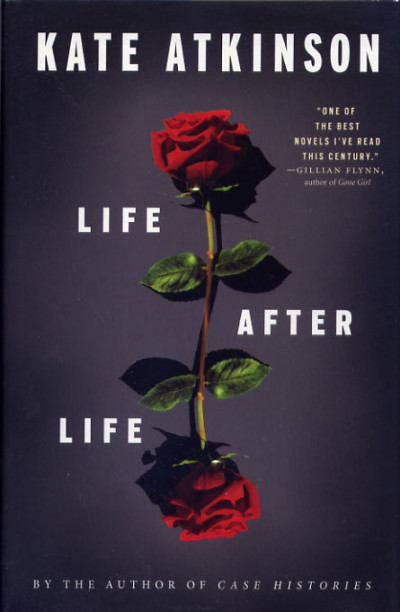
Life After Life
Kate Atkinson
Kate Atkinson is best known for her brainy, broody Jackson Brodie mysteries, but her latest uses a time-loop motif to explore the life of Ursula Todd, born and re-born shortly before the first World War in a rural English manor house. Blessed and cursed with far more than nine lives, Ursula’s stories explore the stuff of life and offer a variety of visions of the world during two wars.
Life After Life is one of those big books that reads like lightning, thanks to Atkinson’s invisible prose and her supple use of the toolkit of fantastic time-travel fiction. We see characters and scenes play out in entertainingly different permutations. Atkinson, having established that her character is being reborn, is happy to dispatch her in a series of sometimes darkly humorous deaths. It’s packing in the literary prizes already, but you’ll never know you’re reading great literature.
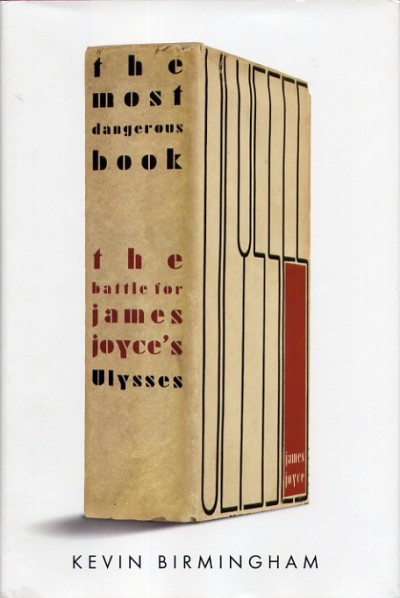
The Most Dangerous Book: The Battle for James Joyce’s Ulysses
Ken Birmingham
The very thought is almost unthinkable. When James Joyce’s revolutionary novel Ulysses was published in 1922, it was routed to the fires of Fahrenheit 451. The British wanted all copies burned. This wasn’t just censorship, it was literary annihilation. While facts of James Joyce’s life may be well known, the facts of the battle to get his most important book published are not. Kevin Birmingham’s The Most Dangerous Book may address one story, it speaks to many since.
Were it not for the incredible level of research that went into the book, you might think you were reading a novel; this is narrative history at its page-turning best. Birmingham gives readers a nice précis of Joyce’s battle to get the book written and then goes down-and-dirty for the fight to get it read. If you’re reading this list, reading matters to you, books matter to you and you might understand that any book you hold could easily become The Most Dangerous Book.
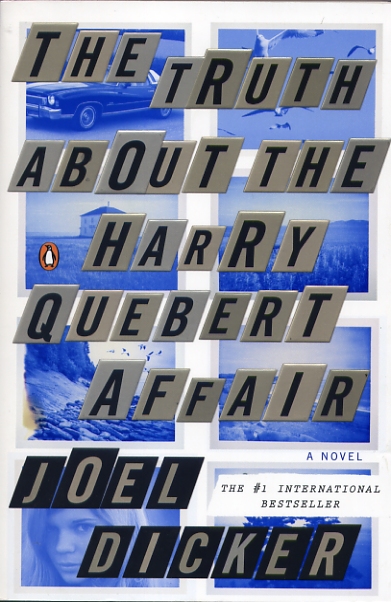
The Truth About the Harry Quebert Affair
Joel Dicker
The winner of three prizes in France, Joel Dicker’s first novel, The Truth About the Harry Quebert Affair, offers a nice mirror-like effect and an intense, well-crafted mystery, wrapped in literature and writing. Marcus Goldman is a young novelist whose first book was a runaway success (like this one). But his second novel is stubbornly proving to be vaporware, and the publishers are getting antsy. So is he; perhaps he should chill out with his old professor, Harry Quebert. A trip to his mentor’s Somerset mansion is just the ticket, until a body pops up and is traced to a murder from 1975.
This is a big book with a small cast, lots of layers with a variety of suspects who have the means, the motive and the opportunity. Goldman wants to make Harry’s story his next acclaimed bestseller. That would be the first novel we’re reading now. Come for the big, literary mystery, and brag about the prizes when you’re done. Vacation time at a Somerset mansion not included.
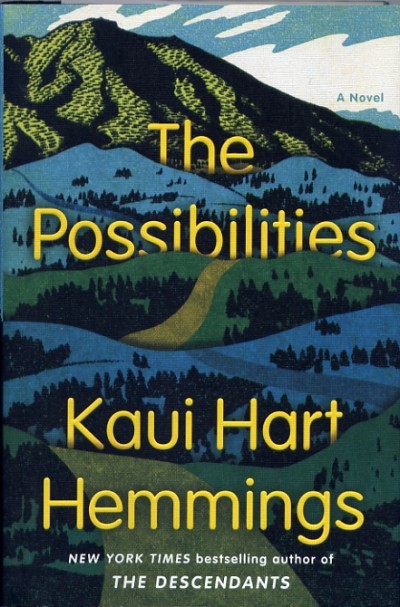
The Possibilities
Kaui Hart Hemmings
You’ll not find a better, more bitter source for dark-hearted literary laughter this summer than Kaui Hart Hemmings’ The Possibilities. Sarah St. John is attempting to return to her job as a local infomercial newscaster in the ski town of Breckenridge, Colorado, three months after her twenty-two year-old son died in an avalanche. It’s not going well. She fast-tracked the stages of grief and now she’s at the one they fail to mention, revelation. She’s finding out quite a bit about her son, most of which she might have preferred not to know.
As with her novel The Descendants, Hemmings has it both ways. She’s as entertaining and insightful as hell, with an emphasis on the fire. Sarah’s father is a charmer, her best friend is both a busybody and a powerhouse, and Sarah is otherwise surrounded by a crowd of opinions and judgments, most of them unflattering. If someone quizzes you about the sweet, summery cover, there’s likely a zinger right there on the page in front of you to shoot back with. All heartbreaks should be this hilarious.
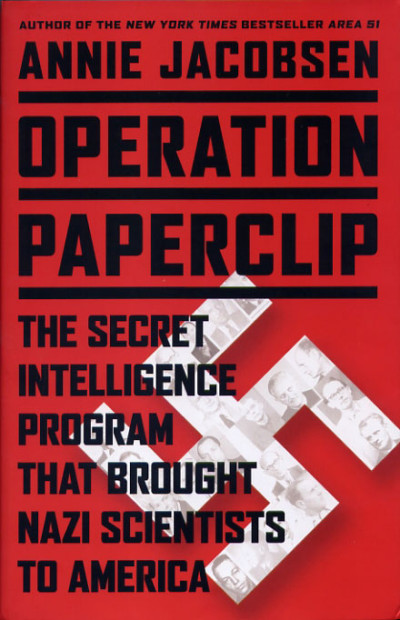
Operation Paperclip: The Secret Intelligence Program That Brought Nazi Scientists to America
Annie Jacobsen
In the final days of World War II, the race was on for Nazi treasure; not the paintings they stole, but rather the masterminds who created the V2 rocket-bomb and chemical weapons from Sarin to Zyklon-B. Annie Jacobsen’s Operation Paperclip explores those days at a breathtaking pace with astonishingly exciting scenes and painstakingly re-created details from a variety of records not so easily obtained even now under the Freedom of Information Act.
History offers its own version of the toe-tapping World War II thriller here, etching in our brains scenes of the horror and cunning of those we recruited to run our glorious space program. Jacobsen wrangles a huge multi-national cast with ease, and turns a complicated back-story into seriously thrilling reading. Anyone who saw those first steps on the moon, stayed up to watch a rocket launch or built a Revelle model of the Gemini space capsule will find themselves enmeshed in revisionary nostalgia. Plus, the title is imposing enough to fend off any questions about light summer reading.
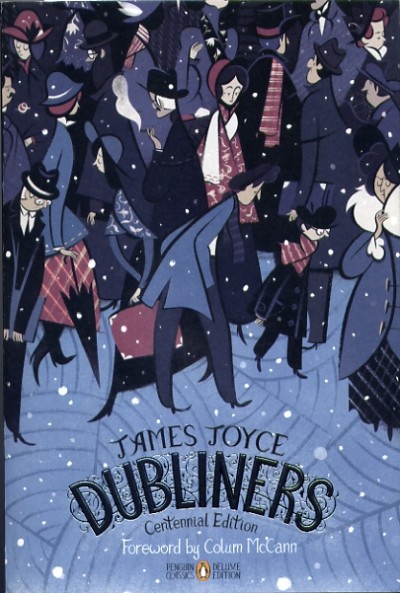
Dubliners
James Joyce
Before he set forth to Change Western Literature As We Know It and got himself in all the hot water associated with Ulysses, Joyce wrote what is arguably the most important single-author short story collection in the English language, The Dubliners. All the skill that made Ulysses so revolutionary went into short, smart stories exploring the inner and outer lives of the people of Dublin. It’s the centenary of this seminal collection, and Penguin Books has given us a gorgeous new trade paperback edition to read at the beach.
James Joyce? Beach reading? Just sink in to The Sisters to see that talent cuts two ways, and allows a brilliant artist to be an engaging and entertaining storyteller, who just happens to evoke psychological insights we’re still trying to sort out 100 years later. As a bonus, you can read the final short story here, The Dead, and then watch John Huston’s 1987 film adaptation starring Anjelica Huston.
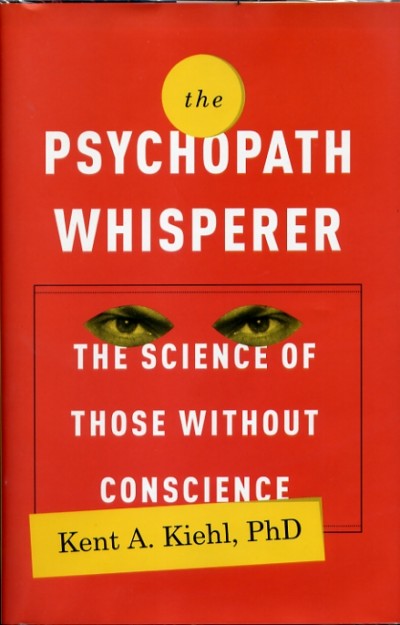
The Psychopath Whisperer: The Science of those Without Conscience
Kent A. Kiehl
As a grad student about to stake out a career, Kent A. Kiehl, PhD, began “living the dream” (an actual quote from the book) by interviewing psychopathic murderers incarcerated in a maximum-security prison in Canada. The Psychopath Whisperer is his story and the story of the science he helped to create, the study of psychopathy. It’s a compelling mix of memoir, science-as-science, the business of science, true crime and technological history. Kiehl was so keen to study the brains of the psychopaths he was interviewing that he eventually managed to get Siemens to build a custom, mobile MRI.
There’s a stunning chapter that analyzes the assassins who killed two presidents, John Wilkes Booth (Lincoln) and Charles Julius Guiteau (Garfield). Kiehl sets up a variety of threads in this book, tracking the inmates, patients, technology, and colleagues. Separately it’s all fascinating stuff, but he brings it together in a stunning denouement. Groundbreaking science should always be this intense and compelling; or, maybe not.
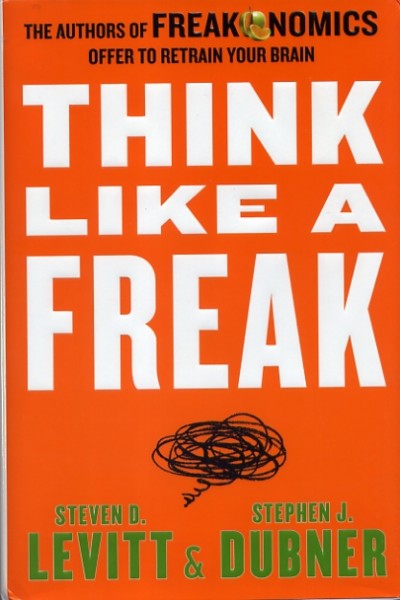
Think Like a Freak
Steven D. Levitt and Stephen J. Dubner
Get inside the mind of a freakonomicist (it’s a real word, now!) and learn how to unlearn whatever it is that is holding you behind, jamming you up or raining on your parade. Levitt and Dubner want nothing less than to change not your mind, but the way you use your mind. Self-help books are always welcome even on the beach, and this is the most upper-crust version you can imagine, or rather not imagine, at least, not until after you’ve read it.
Levitt and Dubner are perilously smart writers who know how to get new thoughts inside even the most recalcitrant and entrenched brains. When they spring the great ideas on you, they’ve already smoothed the way with smart prose, and an aphorism for just about every paragraph in the book. They should (and probably will, knowing who butters their bread) publish a limited edition with everything highlighted, to save you the trouble.
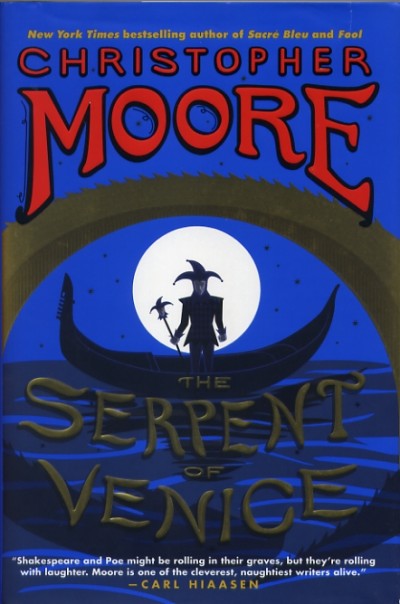
The Serpent of Venice
Christopher Moore
When you’re not laughing, you’ll be giggling, and when not laughing or giggling, you’ll be awed by the sheer audacity of Christopher Moore’s The Serpent of Venice, which manages to riff off of not one, not two but three, count ’em, three Shakespeare plays, Edgar Allen Poe and more history than a season of PBS.
Yes, it’s hilarious, but it is also imaginative and creepy when it needs to be. On the outside it looks like a goofy monster comedy, but on the inside, The Serpent of Venice comes in a really gorgeous first printing in two colors of ink, like one of those high-falutin’ leather editions. This offers up some insight into the reading experience as well. It’s the best of both worlds, great literature and great fun.
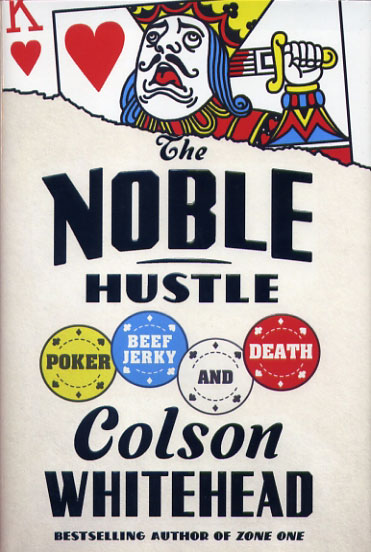
The Noble Hustle: Poker, Beef Jerky and Death
Colson Whitehead
It’s impossible to resist the premise or the prose. The premise: Grantland magazine sends Colson Whitehead, a guy who knows a bit about poker from years of friendly for-money games, to the World Series of Poker and asks him to write about it. Read the first paragraph, and you may not know whether it was the green pill or the red pill, but the world’s no longer the world. Colson Whitehead finds a great groove and the rest of the book is rock and roll.
Whitehead begins the book as a freshly divorced dad, dotingly dropping off his daughter at school then taking the bus to Atlantic City for a hard day and night of gambling practice. He takes on a poker sensei, an ass-kicking middle-aged housewife type, and worries about his role as the “Magic Negro,” who will bestow her with a Hollywood blessing. The practice is fascinating even if you’ve never watched or rarely played poker. Whitehead’s writing is compacted and engagingly entertaining. The Noble Hustle lives up to its title, covering poker, beef jerky and death in some depth. Like summer, you’ll miss it when it’s gone, but Whitehead has an extensive back catalogue to mine.
This list just skims the surface of summer reading that is great literature. Even the frothiest romance, the slickest mystery, the elf-filled fantasy, the girly apocalypse, the celebrity schmooze or the latest how-to-build-an-igloo-on-the-beach book offer something that no television show, radio program, or 3D, 2D, 1D movie can match. That would be reading, that particular experience where you look at the page and turn the words into worlds, where you are in a very real sense the artist and not just the audience. Who needs to brag, really? Just enjoy!



